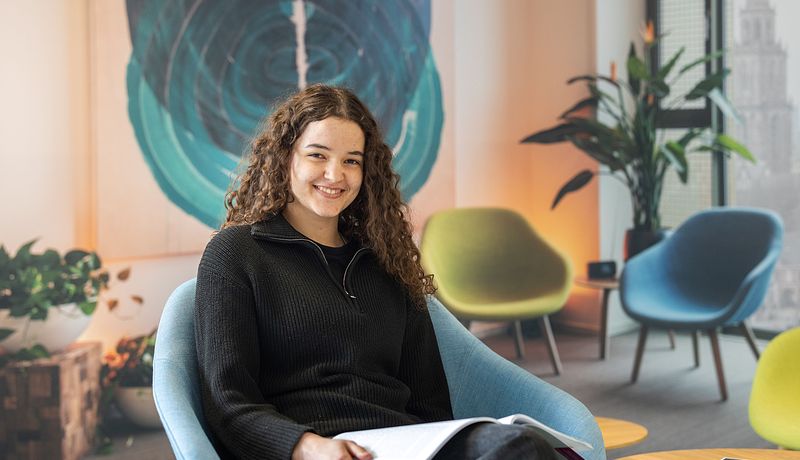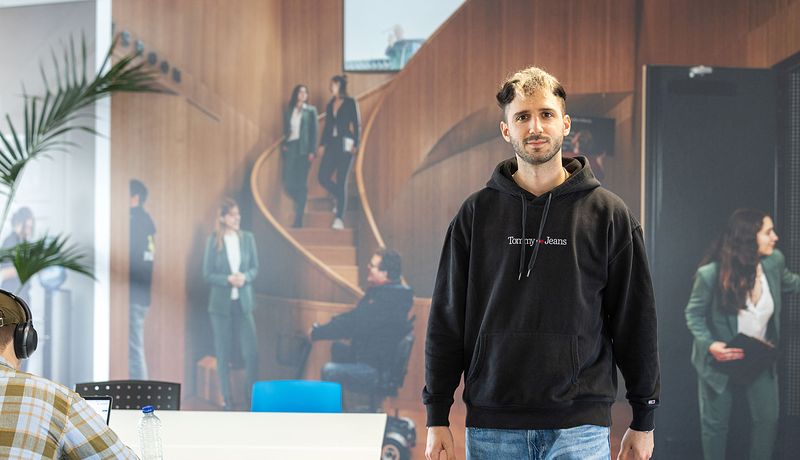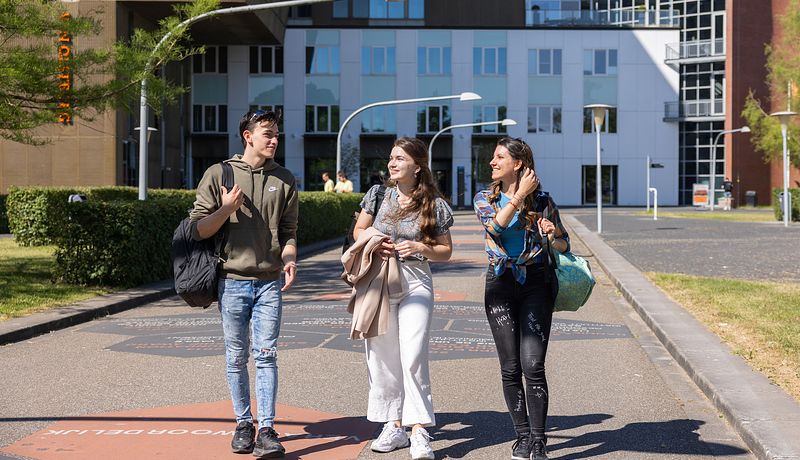International Law & Relations

International Law & Relations
- Level
- Language
- English
- Credits
- 30 ECTS
- Startmonths
- Start: February
- Locations
- Groningen
Are you intrigued by the prospect of becoming a legal expert in the global arena? If so, this programme is perfect for you!
Please note that exchange students can only be nominated for a specific exchange programme if an agreement has been set up between the Hanze School offering this programme and your home university. Also note that there are additional costs for this minor: 70 euros for the two-day excursion to The Hague and 350 euros for the four-day excursion to Strasbourg in France. Please contact your home university for more information about partner agreements, or us, under 'contact' on this page.
This programme is offered again in February 2026.
About this programme
In a world of globalisation international legal dimensions have become more important every day. The number of international rules and regulations increase continuously and the importance of international legislation has a tremendous effect on daily life. The influence of international and European institutions on daily business is a central element of contemporary society. It is within this context that the international semester at the School of Law of Hanze UAS Groningen has been developed.
The programme consists of topics that individuals and companies encounter when operating in an increasingly international environment. A large variety of subjects of international business law will be covered. European Law, more specifically its internal market law, is also dealt with. Practical applicability of the knowledge and skills acquired is central in the learning process. The focus of the so-called Project-Centred Education (PCE) at Hanze UAS is on active learning. The aim is for students to apply acquired knowledge to practical business cases. Students work together in groups under the guidance of tutors on projects that embed these cases.
During the semester students of various academic backgrounds will be provided with information on a number of legal topics. Classes are scheduled on a weekly basis. In class students learn to find relevant information that is essential for workers in the legal field. Moreover, skills trainings are part of the programme, enabling students to actually apply knowledge gained during classes in a practical situation. It allows the participants to get used to work in a multi-cultural environment whilst using English as the functional language. On top of this, negotiation skills are developed as well as cross cultural competences in order to be applied in the projects.

The structure of the programme
The International Law & Relations minor consists of two blocks: the A-Block "Procedures, Companies and Contracts" and the B-Block "Freedoms and Individuals". After each block the student's progress will be assessed through a written exam and assignments such as presentations and written reports. Some elements will be assessed individually, for other elements group marks will be given. The set-up of the entire programme you can find below.
Central in the international semester are the projects and the mandatory excursions to both The Hague (where we visit the International Court of Justice and the International Crime Court) and Strasbourg in France (for the European Parliament and the European Court of Human Rights). In order to receive the credits for the project, students will have to participate in the excursions. To cover the costs of the excursions, an additional fee will be charged (approximately of € 350,- total).
Throughout the semester your theoretical knowledge is to be applied in the project tasks presented during the block to create the opportunity to reach the basic level to complete the project assignments, purposing to reach a level in both legal insight and skills that will allow you to be able to operate as a legal professional in an international context by the end of the semester.
Legal English
Legal English trainings run throughout the semester alongside the project and is of great importance for the projects since it is the language of communication and instruction. B2 level is expected at the start.
Projects
In each block the groups will be assigned to a multi-cultural group of 6 students maximum to work on a thematically based project.
Each project is linked to some major legal topics, subject areas which will provide students with the basic knowledge to work on the assignments within the projects. In the first block the emphasis is on European Law and International Business Law. In the second block the emphasis is on free movement of persons and services, humanitarian aspects of law, EU policy, and pleading.
| This minor is a 30-credit programme. We have four courses and two overarching projects. | ||
| Courses | ECTS Credits | Course code |
| International Law project A | 5 | SIREB23ILA |
| International Law project B | 5 | SIREB21ILB |
| International Relations and Organisations | 5 | SIREB21INR |
| International and European Business Law | 5 | SIREB21IBL |
| Human Rights Capita Selecta | 5 | SIREB21HRC |
| Internal Market Law | 5 | SIREB21IML |
| All these courses are spread across the two blocks | ||
The team of lecturers is looking forward to teach, guide and inspire you as you explore the international legal world. Hope to see you soon!
Before you can start
The International Law & Relations minor is open to exchange students from abroad, students from other universities in The Netherlands and students from the School of Law of Hanze UAS. You should have an affinity with (international) law. You also have to be in the main phase of your study. A propaeduetic certificate is required.
For questions about the content of this minor, please contact the coordinator via the 'Contact & FAQ' tab above.
Admission & application
Please check with your home university whether there is an agreement set up with the Hanze School that is offering the exchange programme of your choice. To apply for and be admitted for our exchange programme you should take the following steps
-
1. Be nominated by your home university
Once you have been nominated, your nomination will be checked by us and confirmed to your home university by email. You will receive your application link during our application period.
-
2. Submit your online application
Once you have been nominated by your home university you will receive a personal application link and the application instructions during our application period. The application is fully digital and documents do not have to be send by email or postal mail. Make sure you do not miss our application deadline!
-
3. Letter of Acceptance
Once you have submitted your application we will check your documents. If you have to re-submit any documents, we will let you know. We will be sending out Acceptance Letters from the beginning of May when you start in September and from the middle of October when you start in February.
Find out more about our application process and practical matters.

Frequently Asked Questions
Contact
-

Roelien Sauchelli-Voortman
Minor coördinator








